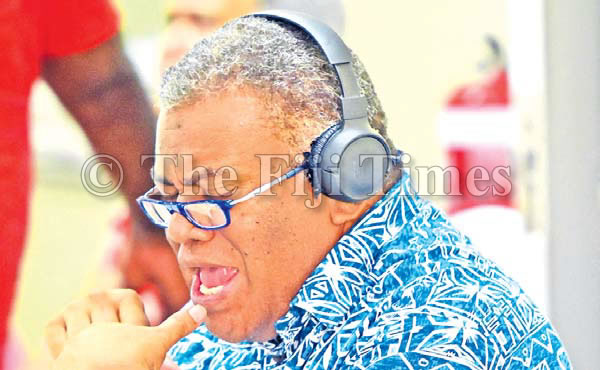In the next four years cassava flour could be in the vicinity of $US4 billion ($F8.1b market whereas cassava starch could be a $US42b ($F85.3b) industry however Fiji has not tapped into this yet.
These were the sentiments of the president of the Tavioka Growers Association Josaia Rayawa, who said these were two value- ads which were already out there and the country needed to capitalise from it.
“For us to being able to put this business together to create flour and distribute it, the beauty thing about this is it’s not tied down to a certain group of people, not even this group of directors of the Tavioka Growers Association,” he said.
“Its impact, the economic tentacle goes right across the entire society.”
He said the current environment for the raw cassava business in this country involved exporters who dealt with raw cassava, middlemen who were buying and selling raw cassava.
“We are birthing a new mindset of farmers, majority of us are a lot of desktop farmers but we have the mind to do something about our resource.
“So it’s driven this whole approach of how do we mobilise mataqali who have land, those people who have their own family land, those who have leased land.”
He said it was a very sad business environment for cassava farmers because they lose out on their profits.
The Tavioka Growers Association has a three prong approach to this issue which is through education, financial security and food security, according to Mr Rayawa.
“One, we are going to educate you about the importance of your health so that you understand. We are already working on that to get people to understand the importance of glutton-free that’s why cassava flour is perfect for us.
“The second part of it is economic; we have opportunity now for more people to have readily cash fl ow available to them, the more people who have money the better for the economy.”
He said they were just focusing on what was not being done in the current setting and work on it. “The Tavioka Growers Association wants you to get into farming you already got the land.”
Mr Rayawa added the third aspect was food security especially after cyclones or natural disasters where most of the food comes from outside the country.
“All we hear about are issues about the challenges of cassava, people are not talking about solutions,” he said.
The group has more than 4000 followings now as a result in a space of less than six months and people who know about it are contributing and sharing their thoughts.
“This is a pool of information sharing and people want to know more. “None of us are experts at agro, but you know everyone that has been part of this group have been CEOs of some associations, run resorts, run media publications, people who have been in the corporate environment or HR background.”
He said the biggest challenges highlighted were people did not have enough money to do what they wanted to do and partly because they did not know how to manage their money.
So the conversations according to Mr Rayawa was being focused on financial strategy, how to create an environment for people to start thinking about opportunities where they create cash flow opportunities.
“Tavioka was the perfect match because it was already regarded as a poorman’s crop but it is something that is readily available to the people.
“When we changed from tavioka to flour we started to get that feedback from people. “So it gave rise to the idea there is a market for this bigger than we think.”
He said there was a mentality of glutton-free society being looked upon as some kind trend but it was unlikely.
“Greater population are glutton intolerant but they just don’t know and they don’t have options.” Mr Rayawa said they were just informing people on a better alternative.
“We educate them about the health the issues about that, get them to understand the issues about celiac disease.
“The discussions that we had with the team here has been in-depth, it’s not about doing a business.
‘A lot of the things we discussed as a committee has greater relevance to our lives as a family as committee.
“We just don’t think about ourselves, we think about how we impact our people.”






